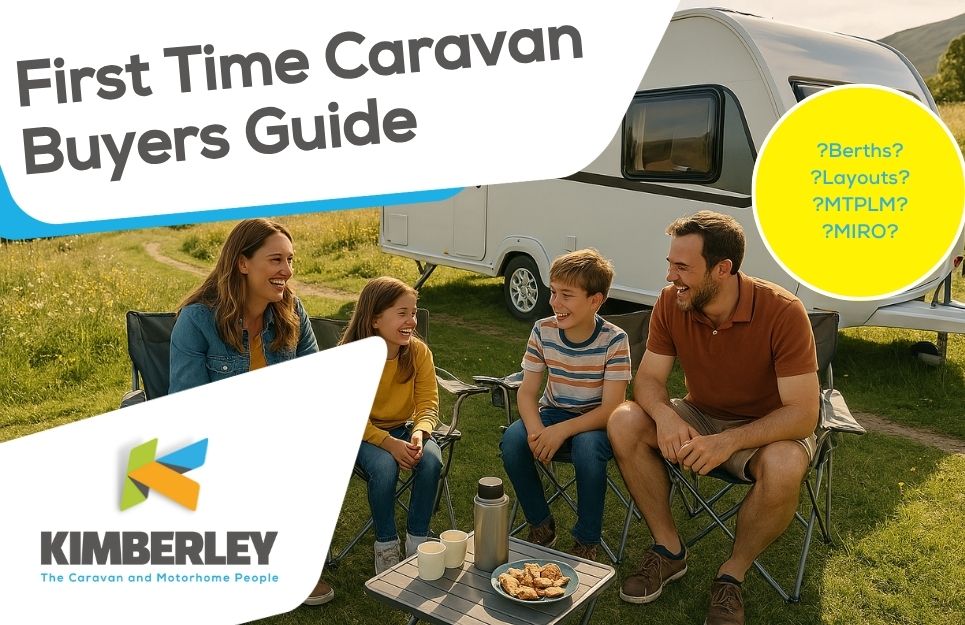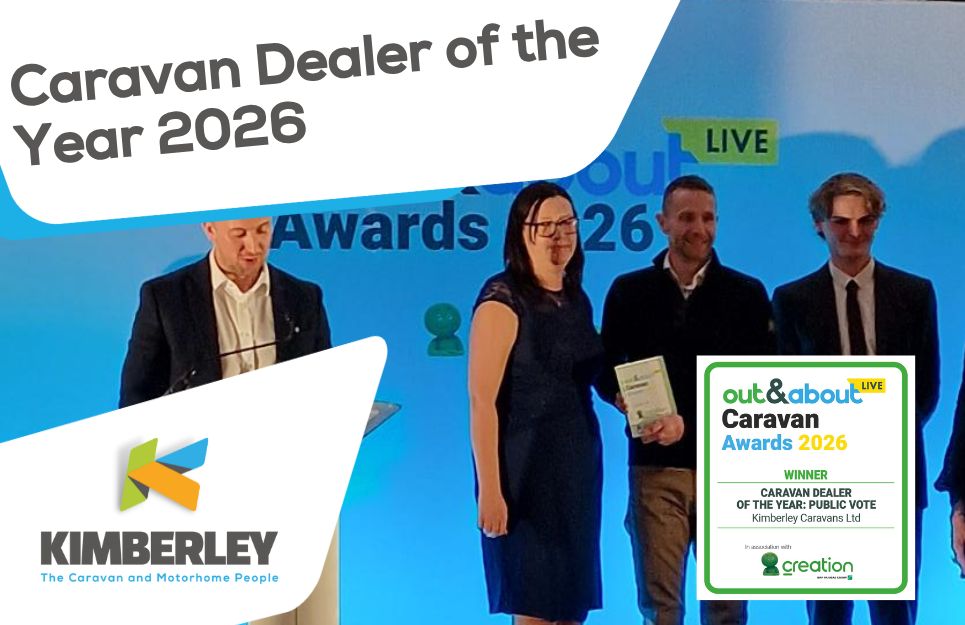
Alright, let’s be honest—caravanning has a certain charm to it, doesn’t it? Just the idea of packing up, hitting the road, and waking up to birdsong somewhere in the Lake District or the Cornish coast... it’s tempting. But behind the dream lies a very real world of steady learning curves, a bit of trial and error, and a few things that can make or break your first season.
If you’re new to all this, don’t worry. Everyone starts somewhere—and most of us wish we’d had someone walk us through the basics with a bit of plain speak (and maybe a bit of humour). So, let’s do just that.
You’d be surprised how many people buy a caravan based on colour schemes or shiny surfaces. But here’s the reality: what matters most is the layout. Not just how it looks, but how it lives.
Are you a morning coffee-at-the-table type? You’ll want a decent dinette. Like to collapse after a hike and watch TV with your feet up? Lounge area’s your friend. Travelling with young kids or a teenager who needs their own space? Bunk beds or a separate bedroom area can save your sanity.
Some quick things to think about:
Fixed beds are brilliant for avoiding daily faff, but they take up space.
End washrooms feel roomy, but you’ll need to walk past sleeping areas for a midnight wee.
Twin axles tow better and feel more stable—especially for longer vans—but can be trickier to manoeuvre on site.
Honestly? Spend an afternoon inside different layouts at a dealership like Kimberley Caravans—you’ll quickly get a feel for what fits your lifestyle.
Right, now for the part that sounds a bit boring—but mess it up, and it’s headaches all round.
Your car needs to match your caravan. And we don’t just mean “looks good together”—we’re talking legal and safe towing. Every car has a maximum towing weight. Every caravan has a Maximum Technically Permissible Laden Mass (MTPLM). Those two need to work in harmony.
A good rule of thumb for beginners? Aim to keep the caravan’s weight under 85% of the car’s kerbweight. It’s not law, but it’s smart—especially when you’re still getting the hang of towing.
Not sure where to start? There are online matching tools (like Towsafe) that take your car reg and suggest suitable caravans. Or better yet, ask the folks at Kimberley —they’ll usually know off the top of their heads.
And don’t forget your towing mirrors. Yes, they look a bit weird. No, you can’t get away without them. They're required by law if your caravan is wider than your car—which it probably is.
Let’s paint a picture. You’ve rocked up at your first site. Parked the van, hooked up the electrics, opened the door... and realised you can’t find your waste pipe, your fridge won’t switch to mains, and the kettle’s packed somewhere under a week’s worth of jumpers. Sound familiar?
Here’s a solid starter kit to avoid that chaos:
Levelling ramps – so you’re not cooking eggs on a wonky hob
Aqua roll or fresh water carrier – think of it as your portable water tank
Wastewater container – this one’s for the grey stuff (from the sink/shower, not toilet)
Toilet chemicals – not glamorous, but trust me, they matter
25m electric hook-up cable – with a circuit breaker for safety
Towing mirrors – again, legally required
Step stool – that first step into the van is steeper than it looks
Corner steady winder – to stabilise your caravan once pitched
You don’t need to go out and spend a fortune on the best of everything. Ask around. Some bits you’ll end up upgrading later anyway, once you figure out what actually works for you. Our Accessories shops at both branches have all these and more. The team will be able to help with any questions you may have.
Look, we might as well get this out of the way. Caravan toilets get a bad rap—but honestly? They're not that bad. In fact, with the right chemicals and a bit of a routine, they’re way less grim than public loos on a motorway.
Make sure you:
Use green or blue toilet fluid (depending on whether you’re on a site with eco rules)
Empty the cassette daily or every other day
Always rinse it thoroughly—you’ll thank yourself later
And if you're parked up somewhere rural? Make sure there’s a proper chemical disposal point nearby. Don’t just wing it—there are rules for a reason.
Now, this one divides people like Marmite. Some swear by awnings, others avoid them like the plague.
But if you’re staying anywhere for more than a few nights, an awning can be a game changer. Extra space for muddy boots, bikes, the dog’s bed, or just somewhere to chuck the camping chairs without tripping over them in the van.
Inflatable awnings are easier to set up than traditional pole ones, but they’re not cheap. And yes, the first time you pitch it, it’ll be mildly chaotic. Possibly windy. Potentially involving words you don’t want the kids to repeat.
Still—once it's up, you'll wonder how you managed without it.
You know what? Everyone fakes it at the start.
You’ll forget how to switch the fridge from gas to electric. You’ll put the steadies down before you’ve levelled up. You’ll bring six blankets and forget the corkscrew.
But that’s half the fun.
Caravanning isn’t about getting everything perfect. It’s about learning as you go. You'll meet seasoned caravanners who’ve been doing it since the ‘80s—and they still forget to unclip the handbrake sometimes. The community is lovely, though. You’ll rarely be stuck for long without someone offering a bit of advice, or lending you a spare loo roll.
Make a checklist. For packing. For setting up. For towing. You’ll laugh at it later, but it will save your bacon.
Practice towing. Take the caravan somewhere quiet and get used to reversing, turning, and braking. It's not hard—it just takes practice.
Bring spare keys. At least once, someone will lock themselves out.
Check your tyre pressure and torque settings before every trip. Not exciting, but vital.
Book sites in advance, especially in peak season. The good ones fill up quickly.
You can plan all you like, but eventually, you’ve just got to hitch up and go. Try a weekend close to home first. Keep it simple. Be flexible. Laugh when things go wrong. Because they will—but those are the stories you’ll be telling for years.
And once you've had your first proper cup of tea sat outside your caravan, watching the sun go down over a field of sheep or a quiet beach... that’s when you’ll get it.
Happy caravanning. And don’t forget the biscuits.
 16/02/2026
16/02/2026
Exciting news! The Kimberley team is heading to the NEC Birmingham for the Caravan, Camping & Motorhome Show from 17th to 22nd February 2026, and we'd absolutely love to see you there.
If you've been thinking about upgrading your caravan or motorhome, or you're just starting your touring adventure, this is THE event to visit. Trust us, it's brilliant.
 08/01/2026
08/01/2026
If you’ve ever found yourself Googling “best time to buy a used caravan” at 10pm with a cup of tea going cold beside you, you’re not alone. We hear this question every single week at Kimberley Caravans and Motorhomes, in Nottingham, in Darlington, on the phone, on emails that start with “Just a quick one…”.
 08/12/2025
08/12/2025
There are moments in business that feel almost surreal, and this one sits right at the top. Kimberley – The Caravans and Motorhome People – have been voted Caravan Dealer of the Year 2026 at the Out & About Awards. Public vote. No panels tucked away in quiet rooms. No mysterious judging criteria. Just real caravanners, motorhomers, weekend wanderers, and lifelong road-trippers choosing the dealer they trust most.
Honestly, that makes it hit a little deeper.